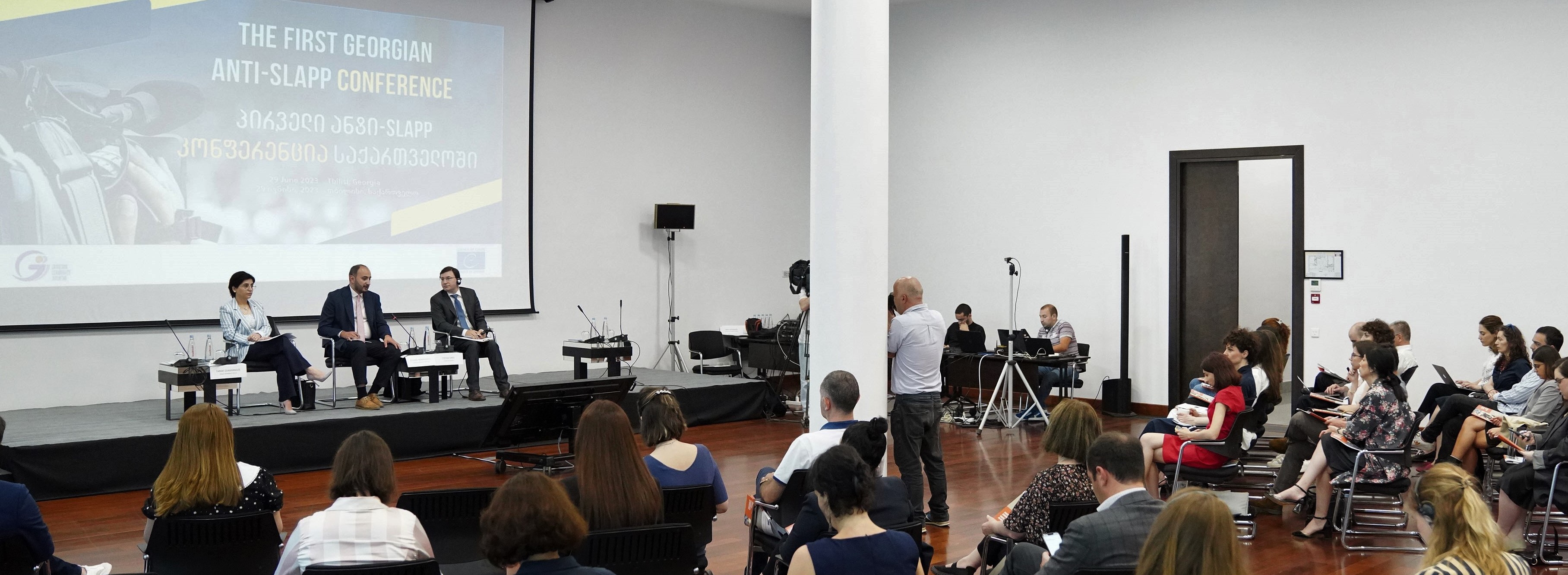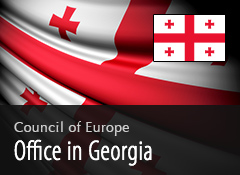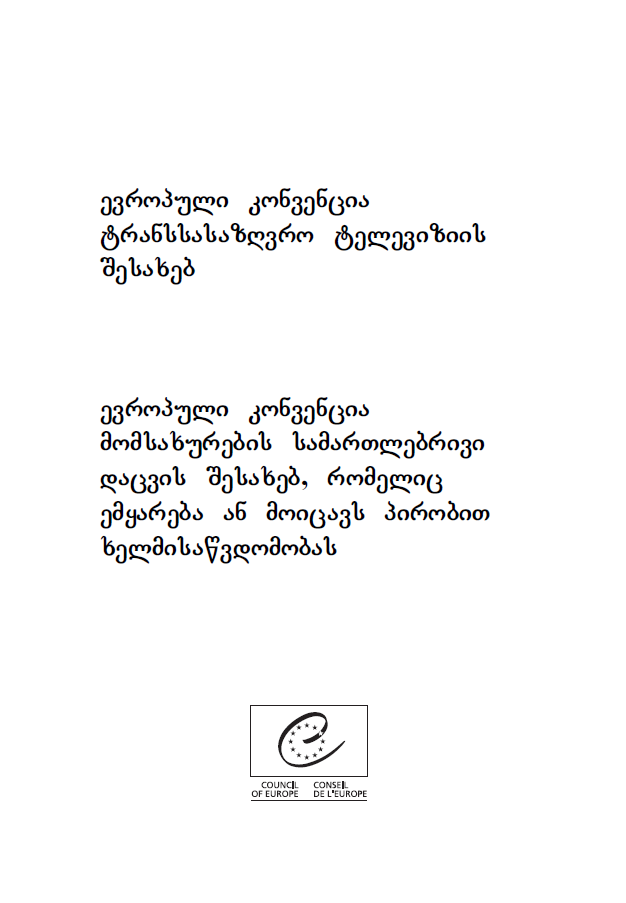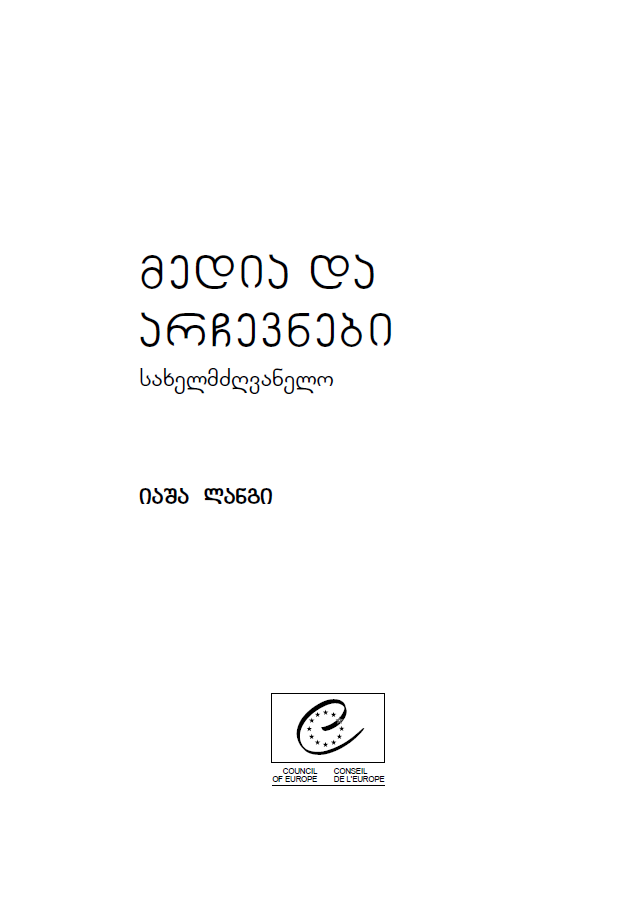On 29 June 2023, the Georgian Museum of Fine Arts, hosted the first Georgian anti-SLAPP Conference related to the topics of Strategic Lawsuits Against Public Participation (SLAPPs).
Stefan Sirbu, the Deputy Head of the Council of Europe Office in Georgia, Eduard Marikashvili, Head of the Georgian Democracy Initiative and Tamar Gvaramadze, the first Deputy Public Defender of Georgia opened the event.
The SLAPPs are widely recognised tools to curb freedom of expression, as well as public participation and refers to filing unfounded lawsuits by politically or economically influential persons against active members of society (journalists, NGOs, activists). The threats posed by SLAPPs have a “chilling effect” on everyone actively engaged in public life and trying to take a stand on issues of public importance.
In 2021-2023, the tendency towards SLAPPs can be observed in Georgia too. At this stage, no less than 38 defamation cases are pending in the general courts of Georgia. These lawsuits have similar characteristics and bear systematic nature.
"SLAPPs are serious threats to the Freedom of Expression. The European Union and the Council of Europe, both acknowledge it and are currently taking measures to address them. I encourage stakeholders in Georgia to create anti-SLAPP tools and relevant visibility mechanisms, to support victims and to raise awareness through media and training of the judiciary and lawyers, “- Dirk Voorhoof, member of the CASE coalition against SLAPPs in Europe.
The First Georgian Anti-SLAPP Conference aims at facilitating the discussion around the SLAPPs tendency worldwide and particularly, in Georgia. Herewith, it is a first attempt to raise awareness about SLAPPs in Georgia and to identify solutions to it. Various interested parties, such as the experts from Europe, the USA, and Georgia, as well as the representatives of media, civil society, justice system, association of lawyers participated in the panel discussions.
"The topic of SLAPPs is on the Public Defender's agenda and will remain so. Together with the civil society organisations and other stakeholders, we will try to reduce the negative impact this may have on Freedom of Expression,"- Tamar Gvaramadze, the First Deputy Public Defender of Georgia.
The event has also become the occasion for establishing the Georgian anti-SLAPP platform by Civil Society Organisations.
"The purpose of the Anti-SLAPP Platform is to work together to empower and protect the media representatives and human rights defenders from the threat posed by SLAPPs brought against them. Within the framework of the platform, six non-governmental organizations, we will coordinate our activities against SLAPPs. We hope that other organizations will also be interested to join this platform,"- Eduard Marikashvili, Chairperson of the "Georgian Democracy Initiative (GDI).
The conference was held in the framework of the Council of Europe project “Strengthening Media Freedom, Internet Governance and Personal Data Protection in Georgia”, in partnership with the Georgian Democracy Initiative (GDI). The conference was supported by the Public Defender’s Office of Georgia, the Coalition Against SLAPPs in Europe (CASE), Human Rights House Foundation (HRHF) and USAID Rule of Law Program implemented by the East-West Management Institute (EWMI).







